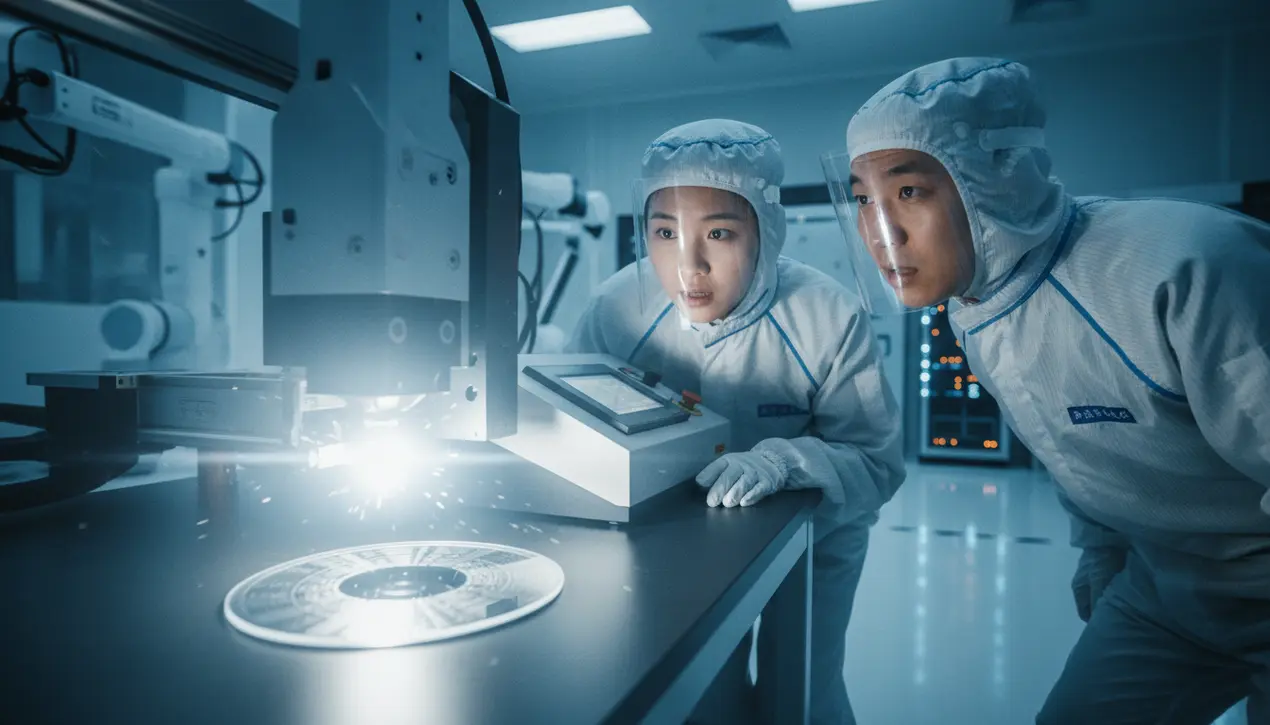
SciencephysicsMaterials Science
Chinese Scientists Cut Laser and EV Part Production Time to One Second
KE
Kevin White
1 hour ago7 min read
In a development that feels ripped from the pages of a sci-fi novel, Chinese scientists have fundamentally rewired the manufacturing clock for a critical component of modern technology, slashing the production time of dielectric energy storage capacitors from a sluggish hour down to a blistering single second. This isn't just an incremental improvement; it's a quantum leap in materials synthesis, achieved through a revolutionary 'flash annealing' technique that subjects materials to thermal shocks of 1,000 degrees Celsius per second.Imagine a process where crystal films, the heart of these capacitors, are essentially forged in a flash of intense, controlled heat on a standard silicon wafer, bypassing the painstakingly slow conventional methods that have long been a bottleneck in advanced electronics manufacturing. The implications are staggering, stretching far beyond the laboratory bench.For the burgeoning electric vehicle industry, this breakthrough promises a new era of scalable, temperature-stable energy storage systems that could drastically reduce charging times and enhance power delivery, directly addressing two of the most significant hurdles to mass EV adoption. Simultaneously, it supercharges the capabilities of high-power lasers—vital for everything from medical equipment and manufacturing to defense systems—and radar technology, enabling more compact, powerful, and responsive devices.The core of this innovation lies in the mastery of the capacitor's dielectric layer, a material that has traditionally required a delicate, time-consuming dance of heating and cooling to achieve the perfect crystalline structure necessary for holding and releasing massive amounts of energy efficiently. The Chinese team's method shatters this paradigm, offering a pathway to industrial-scale production that was previously unimaginable.From a biotech and medical perspective, which often intersects with advanced materials science, this has a familiar ring; it's reminiscent of the disruptive impact CRISPR had on genetics, where a previously arduous process was suddenly made rapid and accessible. The ability to 'print' high-performance electronic components at this speed could catalyze a wave of innovation in bio-integrated devices, advanced diagnostic tools, and next-generation implantable medical tech.While the immediate beneficiaries are clear—automotive, defense, and energy sectors—the downstream effects could be profound, potentially lowering costs for a vast array of consumer electronics and accelerating the global transition to renewable energy by improving grid-scale storage solutions. This positions China not just as a participant, but as a formidable pace-setter in the high-stakes global race for technological supremacy in core materials science, a field that increasingly underpins economic and strategic advantage in the 21st century.
#research & breakthroughs
#flash annealing
#dielectric capacitors
#energy storage
#Chinese scientists
#featured
Stay Informed. Act Smarter.
Get weekly highlights, major headlines, and expert insights — then put your knowledge to work in our live prediction markets.
Related News
Comments
Loading comments...
© 2025 Outpoll Service LTD. All rights reserved.